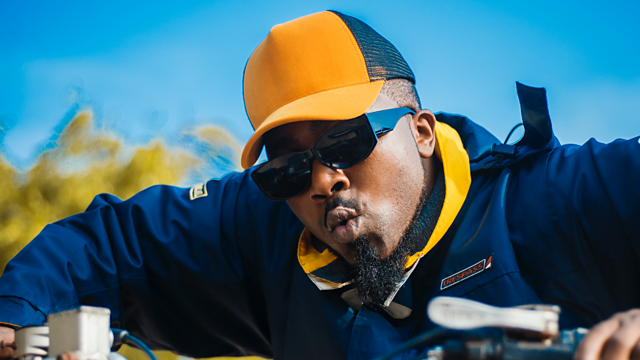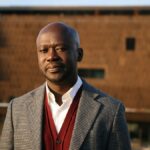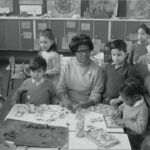Growing up in the city of Jos in central Nigeria, Ice Prince never set out to become a musician. But through personal loss and the and the violent crisis he saw unfolding on the streets, he found solace in singing and rap music.
When you hear of Nigeria, one immediately thinks of the buzzing metropolises of Abuja or Lagos. Never Jos, the hometown of Nigeria’s top hip hop artists, Ice Prince.
Jos is the definition of picturesque. In central Nigeria, it is a hotspot for tourism and foreign settlers. The city of Jos is ideal for nature lovers as it provides a sense of retreat away from the hustle and bustle of the two major cities. Think adventure, think Jos.
Ice Prince had always sung in Jos. He was known for being in a choir, and performing at different schools in the Plateau state with his band, the ECOMOG squad.
“I was 14 in a group called Ecomog squad.” ECOMOG is a UN Military Force for the West African region. “The reason we called ourselves ECOMOG squad at the time was because all of our dads were uniformed officers. My father was a policeman, the other guy in the group, his dad was a soldier, and the third guy in the group, his dad was an Air Force officer.”
But when Boko Haram went to Jos, there was a different and uneasy new military presence in Ice Prince’s hometown.
“The military presence came when something ugly hit the city. Soldiers were deployed to Jos and it became a very militarised area.”
The beginning of insurgency in Jos, brought unsettling moments in both Ice Prince’s and the city’s life. All things changed for the worst.
In 1999, Ice Prince lost his father and it had a really big impact on his only son.
“I lost my dad to tuberculosis and it was really ugly at the time because I’m the only son and I come from a large but small family. Cousins live with us, uncles live with us, nephews and my dad was the provider for his family and he was the person who took care of everybody and being his only son, apart from the pain of losing him, I had to deal with the responsibility of taking care of everybody.”
“In an African culture, the first son or the only son takes over the dad is gone. Things changed. I was living a more comfortable life when he was alive and when he passed away we did lose a lot of things to family.”
Similar to Nollywood films, Ice Prince’s life took the stereotypical turn of a character who lost his comfortable life as a result of a parent’s death. The story goes, as the husband passes away, the extended family shares the property of the husband between themselves out of greed and claims what they think rightfully belongs to them, ultimately taking advantage of belonging to the widow and his lineage.
“I don’t mean disrespect to my family members but my mum did get a lot of heat when my dad passed away. So we had to change schools, go to a more affordable school from a very expensive school. We just had life cut down.”
Ice Prince was only 15 years old when the fighting between Christians and Muslims started. He says the only way to escape the violence at the time was to leave the city for good.
Instead however, there was one alternative for Ice Prince, he found solace in music. To continue with his music, Ice Prince would go to the top of mountains.
“Our place of solace back then was to go to the mountains or go to have hikes or picnics and stuff like that. I started perfecting my writing and my rapping skills on the top of these hills. There was nobody there and you were sure that nobody was coming to burn down anything or kill anybody. People in my community started doing all that. People used to pray on the mountains. We needed to do that to keep ourselves sane.”
Off to university, Ice Prince studied zoology. Yes, music was not his first love, animals were. But he dropped out because his family could no longer afford the fees.
“When I dropped out and couldn’t continue with my university education, the studio became the only place I could really stay out of trouble, off the streets, or being a nuisance to society. I found the studio to be a more comfortable place.”
“I was a very young boy and most of the people around me were in their mid-20s but they welcomed me. They loved having me around and I learnt a lot of skills from them; coupled with church and singing in the choir.”
It was in the studio he met, M.I. Abaga, another great rapper from Nigeria whom Ice Prince calls his mentor.
“We became family. We worked on his mum’s album in church and while we worked on that album we also became friends. We started living together and had a studio at the crib and our pastor gave us some equipment to set up and music from home.”
And that’s where he started.
“I found my dream in Lagos, of what I want to be, I found it in that city. Luckily for us when I first moved to Abuja, we got a platform from the british council. They used to host an event that brought creatives together every saturday to showcase.”
At such showcases Ice Prince took advantage of the opportunities and became a co-host for the event. This catapulted him to assume his position of an assistant to his mentor M.I. Abaga.
In 2010, he released his first official single, ‘Oleku’ which hit the charts and was a success.
“Before then I was really just a hype man for M.I. Abaga and an assistant to him. I finally got to release my own song and it was explosive. I can comfortably say that that song is a classic, even though I don’t like to blow my own trumpet.”
Ask any Nigerian and they will tell you it is indeed a classic.














